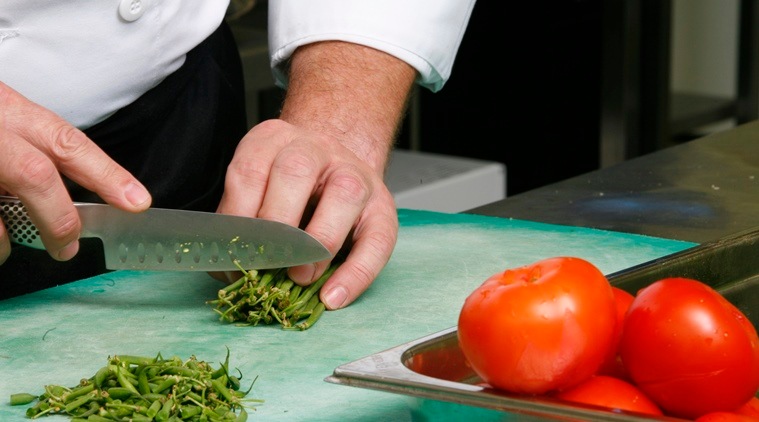📣 For more lifestyle news, click here to join our WhatsApp Channel and also follow us on Instagram
Dos and don’ts: Simple tips to maintain your knife set
As much as your chopping and cooking skills, you also need to hone your best friend, your knife, occasionally
 How do you care for your knife set? (Photo: Getty Images/Thinkstock)
How do you care for your knife set? (Photo: Getty Images/Thinkstock)A good set of knives is an asset to the kitchen. Having a range of knives for paring, chopping, slicing, and boning can realise your dream of being a home chef.
“However, investing in a good set of knives is as important as caring for them properly. Using the right knife care can not only increase its longevity but can impact its performance too. Besides, a dull knife can be dangerous and is likely to cause an injury more than a sharp one,” said Rajesh U Pandya, managing director, KAI India.
Below, he shares some simple tips to keep your knives in good condition and increase their life.
Wipe and stow away the knife: Do this right after you finish using your knife. This is important because leaving a used knife as it is will allow the vegetable, fruit, fish, and meat residues to collect on it. This will foster the growth of harmful bacteria that can get into your body later. A study by the University of Georgia shows utensils can spread bacteria such as E. coli and salmonella between different types of produce, which could lead to food poisoning.
Hand wash and dry them properly: Dishwashers produce a large amount of force to clean the utensils. This can harm your knife and reduce its edge as well as sharpness. Always hand wash your knives with gentle dish soap. Do not use a scrub pad, be careful while you wash the blade. Initially, you may want to use a pair of gloves to save your fingers. Do not use soaps with citrus extracts or bleach as they can cause rust. Rinse the knife and towel dry immediately. Make sure that all of the water and moisture have been dried off the sharp cutting edge before you stow it away.
Avoid leaving knives in the sink or in the utensil drawer: The edges of a knife are sharp and rubbing against a surface constantly can make it blunt. If you leave your knife in the kitchen sink before washing or in the utensil drawer after it, chances are its blades are constantly rubbing against other utensils. While this may cause gashes and marks on the utensils, it is more harmful to the knife as they may lose their sharpness and utility.
 Sharpen your knife once a year either at home with a whetstone or seek professional help. (Photo: Getty Images/Thinkstock)
Sharpen your knife once a year either at home with a whetstone or seek professional help. (Photo: Getty Images/Thinkstock)
Use a chopping board: They are the best and lifelong friend of your knife. As the name suggests, the purpose of this kitchen tool is not only to organise your cutting process but also to provide a cushion to the sharp blades of your knife. This is because if the blades hit a granite countertop constantly, the blades may be dented. If you use your hands as the base, chances are you will injure yourself. Choose a wooden chopping board, especially for meat and flesh, to be able to clean them easily and avoid the transfer of harmful bacteria.
Sharpen the knife from time to time: As much as your chopping and cooking skills, hone your best friend, your knife, occasionally. This will save you a range of problems – from an injury to an embarrassment. Sharpen your knife once a year either at home with a whetstone or seek professional help.
📣 For more lifestyle news, click here to join our WhatsApp Channel and also follow us on Instagram
- 01
- 02
- 03
- 04
- 05



























